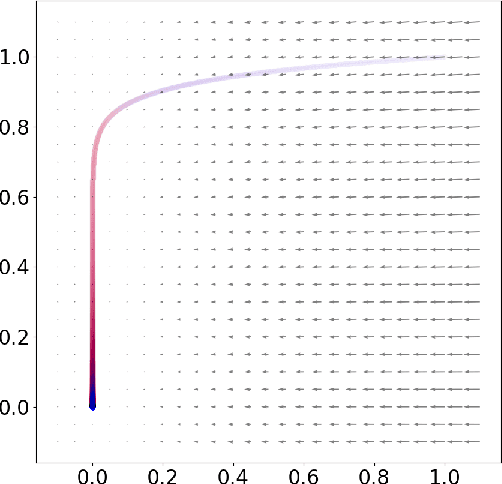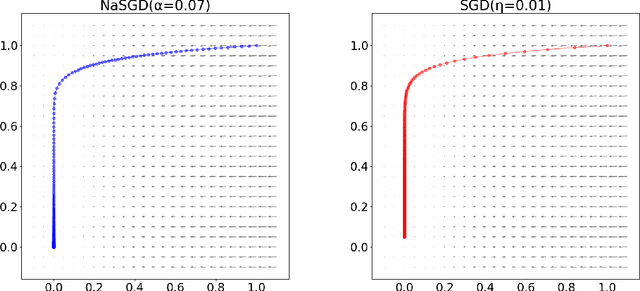Reparametrizing gradient descent
Paper and Code
Oct 09, 2020



In this work, we propose an optimization algorithm which we call norm-adapted gradient descent. This algorithm is similar to other gradient-based optimization algorithms like Adam or Adagrad in that it adapts the learning rate of stochastic gradient descent at each iteration. However, rather than using statistical properties of observed gradients, norm-adapted gradient descent relies on a first-order estimate of the effect of a standard gradient descent update step, much like the Newton-Raphson method in many dimensions. Our algorithm can also be compared to quasi-Newton methods, but we seek roots rather than stationary points. Seeking roots can be justified by the fact that for models with sufficient capacity measured by nonnegative loss functions, roots coincide with global optima. This work presents several experiments where we have used our algorithm; in these results, it appears norm-adapted descent is particularly strong in regression settings but is also capable of training classifiers.
 Add to Chrome
Add to Chrome Add to Firefox
Add to Firefox Add to Edge
Add to Edge